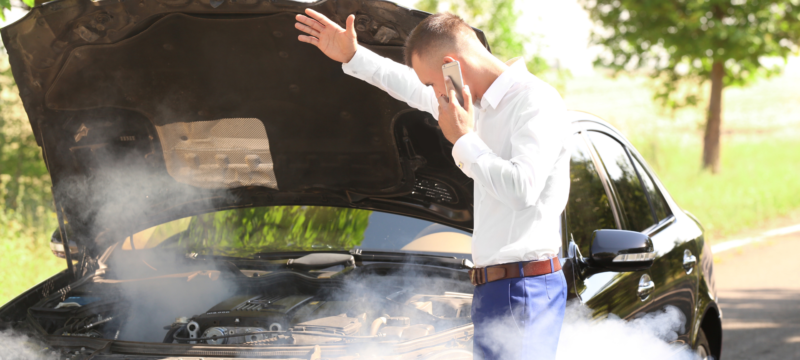Overheating can be a sporadic problem or it can happen frequently. The most common cause of car overheating is the cooling system not working correctly. The coolant in your car helps to take the heat away from the engine and disperse it evenly throughout the radiator. If there isn’t enough coolant, or if it isn’t circulating properly, your engine can overheat.
Other reasons for your car overheating can include a failed water pump, which is responsible for circulating the coolant, or problems with the radiator. A head gasket leak can also cause your car to overheat as it can allow coolant to escape from the engine.
If you live in a hot climate, it’s important to make sure your car’s cooling system is in good working order. The coolant should be flushed and refilled according to the manufacturer’s recommendations. In addition, the radiator should be inspected for leaks and the hoses should be checked for cracks or leaks. If you live in a cold climate, it’s important to winterize your car’s cooling system. This includes adding antifreeze to the coolant and making sure the radiator is properly drained.
If your car starts to overheat, there are a few signs you will notice. The first is the temperature gauge on your dashboard likely moving into the red zone. You may also see steam coming from under the hood, or your car may start to make strange noises. If your car overheats often, it’s important to take it to a mechanic to have it checked out. There could be a problem with the cooling system that needs to be repaired. However, if overheating is a sporadic problem, there are still steps you can take to prevent it from happening.
If your car starts to overheat, there are a few things you can do to try and cool it down. First, turn on the heater. This may seem counterintuitive, but the heat will help draw the heat away from the engine and into the cabin of the car. Next, turn on the fan to its highest setting. Again, this will help move hot air away from the engine and into the cabin. Finally, if you have an automatic transmission, put it in neutral. This will take some of the load off of the engine and help it cool down faster. If none of these things work, or if your car starts smoking, pull over immediately and call for roadside assistance.
In addition, if you find yourself in a situation where your car has overheated, there are a few things you should have on hand. First, a jug of coolant. This will help to replenish the fluids in your radiator and hopefully cool down your engine. Second, a quart of oil. If your car has been running hot, there is a chance that it has burned through some oil. Adding more oil will help to lubricate the engine and prevent further damage. Finally, a funnel. This will make it easier to add coolant and oil to your car without making a mess.
Overheating can be a serious problem, so it’s important to be familiar with the symptoms and know what to do if it happens to you. By following these steps, you can help prevent your car from overheating and keep yourself safe on the road. And if you need help getting back on the road, contact us today at Pinecrest Shell. We’ll be happy to assist you in whatever way we can.



Leave a Comment